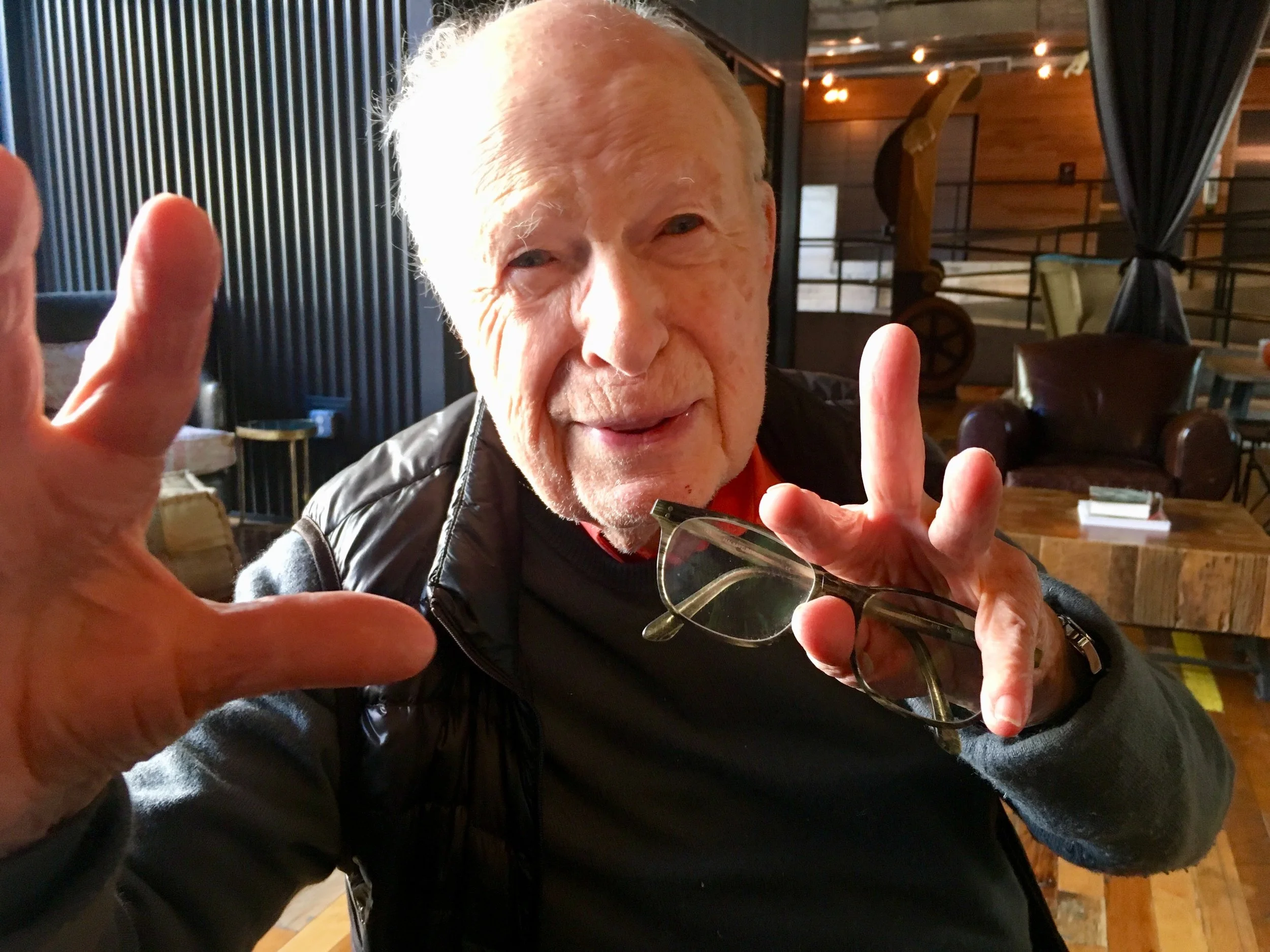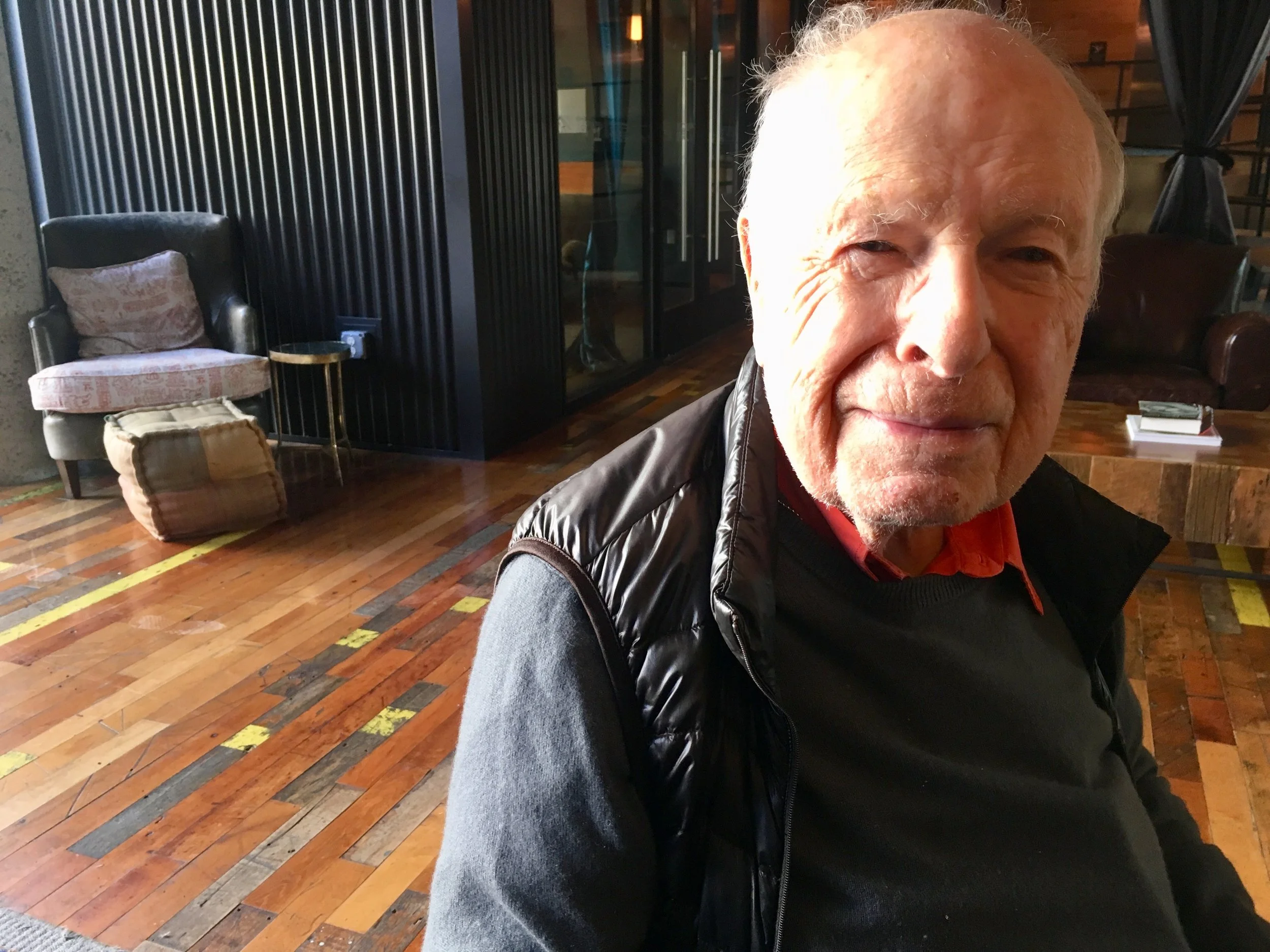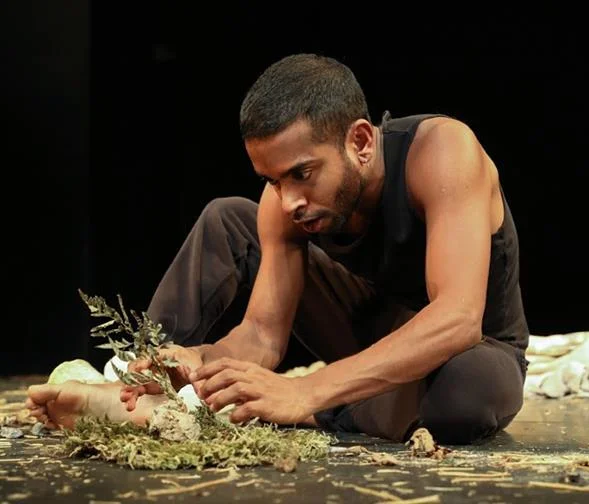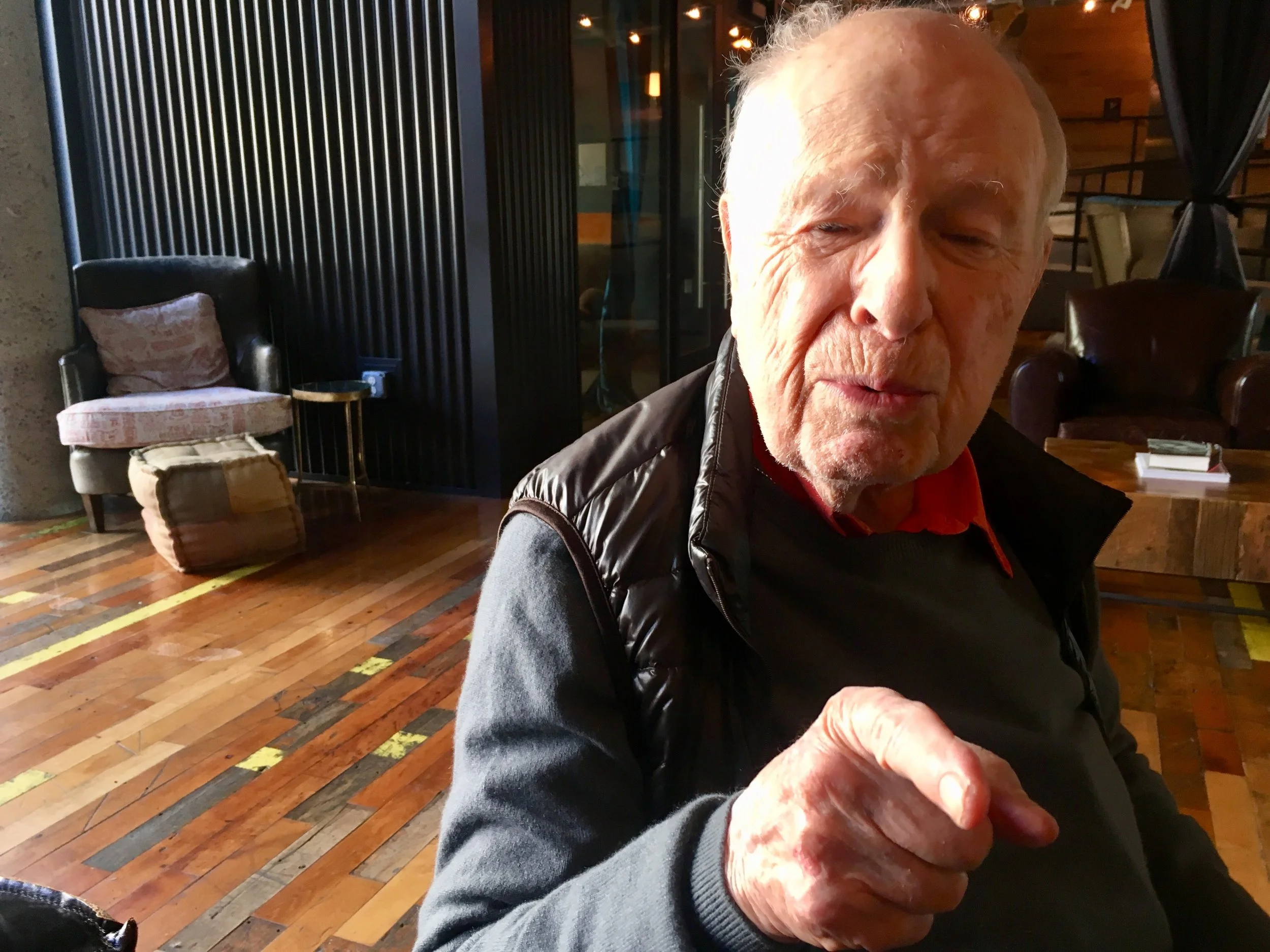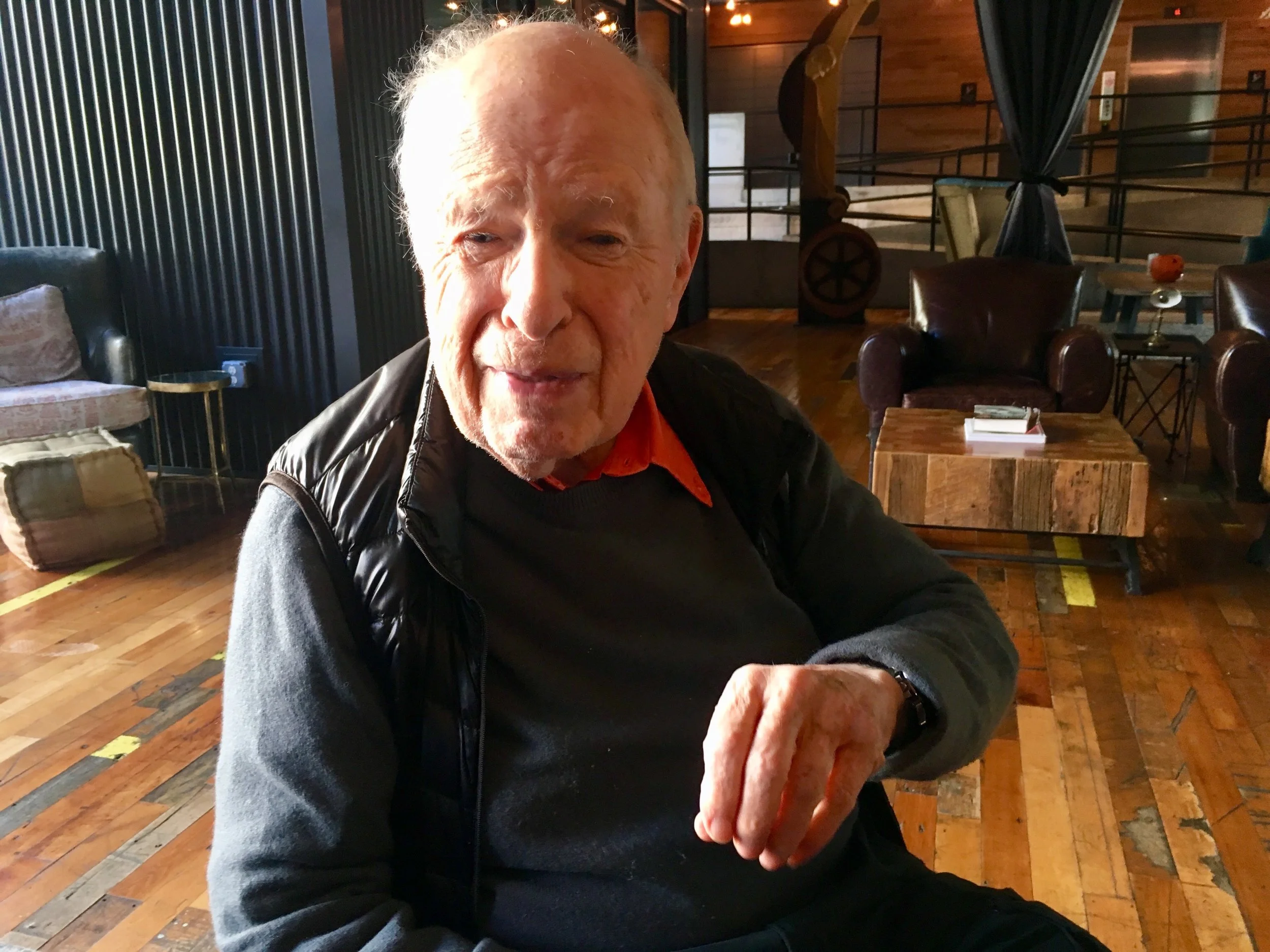At 93, Peter Brook Finds His Essence in 'The Prisoner'
Peter Brook, New Haven Oct. 31, 2018. All photos of Brook by Frank Rizzo.
After more than 70 years in the theatre, writer-director Peter Brook continues to create new productions that challenge and mystify. His latest is The Prisoner, which is making its New York debut at Theatre for a New Audience in Brooklyn. Co-written and co-directed by Brook's longtime collaborator Marie-Hélène Estienne, this examination of imprisonment, the justice system and personal enlightenment focuses on a man (Hiran Abeysekera) mysteriously camped outside a jail.
These topics have long fascinated Brook, who won the 1966 Tony Award for Best Director for his staging of a play that touched on similar themes: The Persecution and Assassination of Marat as Performed by the Inmates of the Asylum of Charenton Under the Direction of the Marquis de Sade. While he worked with Laurence Oliver, John Gielgud, Paul Scofield, Glenda Jackson and other luminaries in his native England and on Broadway early on, the bulk of his career has been spent crafting theatre outside the mainstream spotlight with a multinational company of performers at his International Centre for Theatre Research in Paris. That's where he created the lauded three-part Hindu saga Mahabharata in 1985 and also where The Prisoner was born.
The play is inspired by an experience Brook had in the '70s while traveling in Afghanistan. He heard about a young man sitting on a hill facing a dilapidated prison and, curiosity piqued, sought him out. The man had been sentenced to remain there, without locks or bars, until he felt that he had atoned for an unnamed wrongdoing.
"It has haunted me for over 50 years," says Brook who, at 93, resembles a theatrical Yoda: a kindly face, soft-spoken voice and responses that have the centered calm of a wise master.

